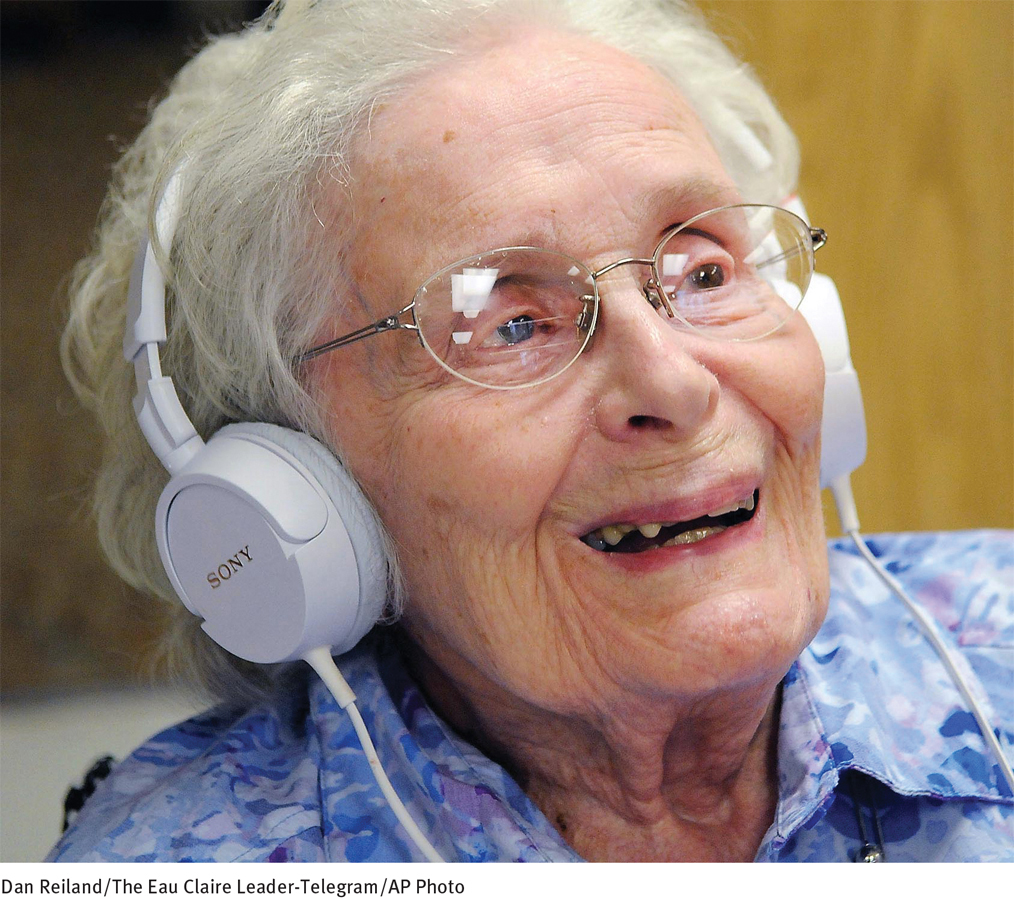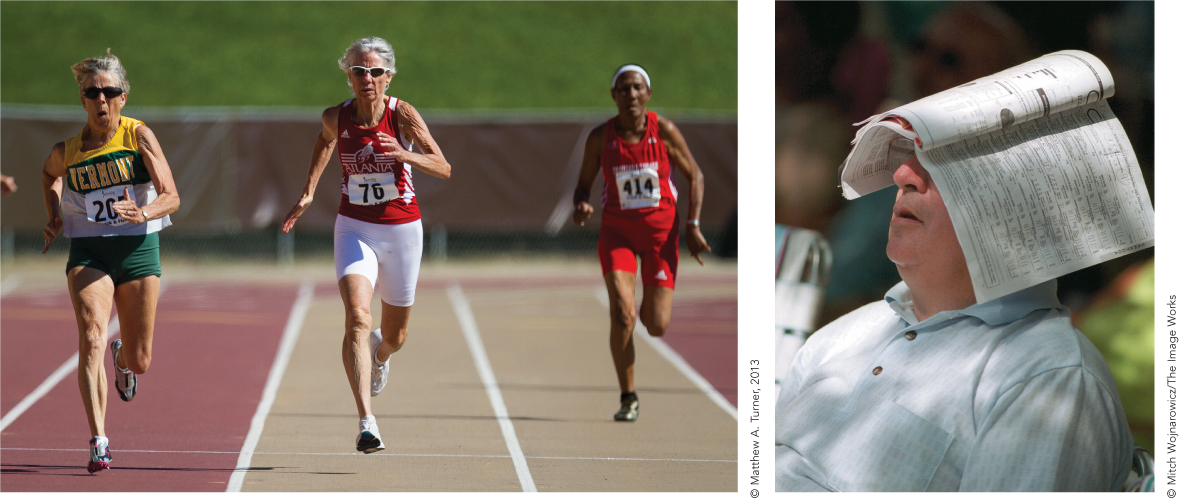18.3 Anxiety Disorders in Later Life
Anxiety is also common among elderly people (APA, 2014; Lenze et al., 2011). At any given time, as many as 11 percent of elderly individuals in the United States experience at least one of the anxiety disorders. Surveys indicate that generalized anxiety disorder is particularly common, affecting up to 7 percent of all elderly people (ADAA, 2014; Holwerda et al., 2007). The prevalence of anxiety also increases throughout old age. For example, people over 85 years of age report higher rates of anxiety than those between 65 and 84 years. In fact, all of these numbers may be low, as anxiety in the elderly tends to be underreported (APA, 2014; Jeste et al., 2005). Both the elderly patient and the clinician may interpret physical symptoms of anxiety, such as heart palpitations and perspiring, as symptoms of a medical condition.

The power of music The look on the face of this nursing home resident as she listens to music on her iPod underscores the repeated research finding that music helps improve the physical and emotional functioning of many elderly people.
There are many things about aging that may heighten the anxiety levels of certain people (Lenze et al., 2011). Declining health, for example, has often been pointed to, and in fact, older persons who have significant medical illnesses or injuries report more anxiety than those who are healthy or injury-free. Researchers have not, however, been able to determine why some people who face such problems in old age become anxious while others in similar circumstances remain relatively calm (see InfoCentral below).
Page 612

Racing to mental health Gerontologists propose that elderly people need to pursue pleasurable and personally meaningful activities. The elderly women on the left compete in a race at the 2013 National Senior Games in Ohio. In contrast, the elderly gentleman on the right, also interested in racing, watches a competition at the Saratoga Springs horse racing track with the daily racing form on his head. Which of these two activities might be more likely to contribute to successful psychological functioning during old age?
Older adults with anxiety disorders have been treated with psychotherapy of various kinds, particularly cognitive-behavioral therapy (McKenzie & Teri, 2011; Sorocco & Lauderdale, 2011). Many also receive benzodiazepines or other anti-anxiety medications, just as younger sufferers do. And a number are treated with serotonin-enhancing antidepressant drugs. Again, however, all such drugs must be used cautiously with older people (Dubovsky & Dubovsky, 2011).

